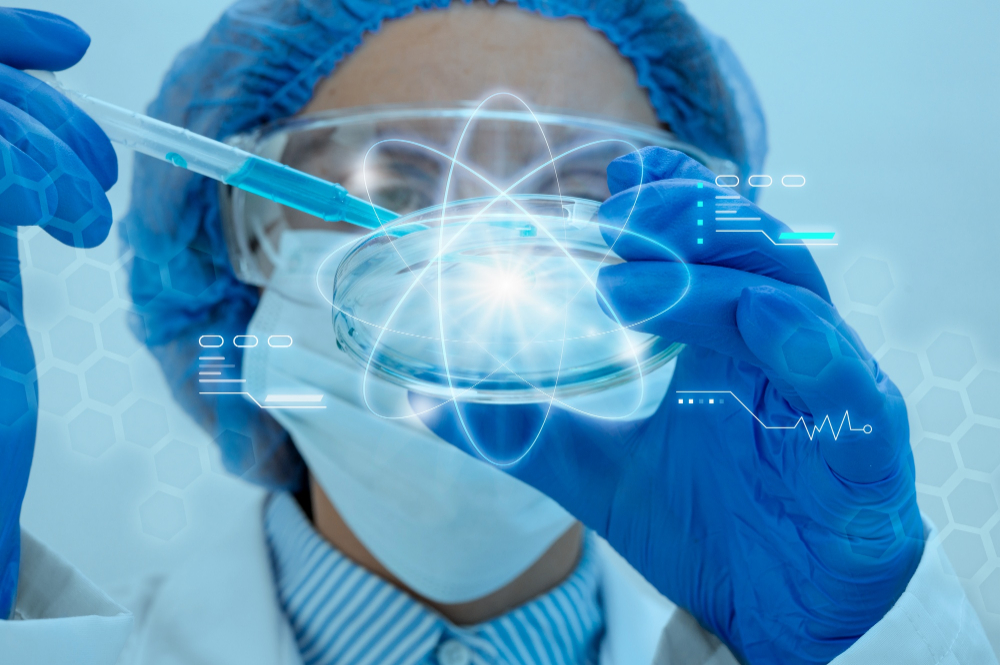
The convergence of biotechnology and artificial intelligence has the potential to revolutionize the way we approach healthcare and various other industries. By combining the power of advanced AI algorithms with the cutting-edge biological research, scientists and researchers can unlock new possibilities in medicine, agriculture, and numerous other fields.
One of the most significant implications of this convergence is the development of personalized medicine. By leveraging AI technology to analyze genetic data and other biological information, healthcare providers can tailor treatment plans to individual patients, leading to more effective and targeted therapies. This could lead to improved patient outcomes and reduced side effects compared to traditional one-size-fits-all approaches.
Another implication is the potential for accelerated drug discovery and development. AI algorithms can analyze vast amounts of data and predict how different compounds will interact with biological systems, speeding up the process of identifying potential drug candidates. This could lead to the development of new treatments for diseases that are currently difficult to treat, such as certain types of cancer or rare genetic disorders.
The convergence of biotechnology and artificial intelligence also has the potential to impact agriculture and food production. By using AI to analyze crop data and genetic information, researchers can develop more resilient and nutritious crops that are better suited to the challenges of a changing climate. This could help ensure food security for a growing global population while also reducing the environmental impact of agriculture.
This convergence could lead to advancements in the field of synthetic biology. AI algorithms can help scientists design and engineer biological systems with unprecedented precision, allowing for the creation of novel organisms that can produce valuable compounds or perform specific functions. This could open up new possibilities for the development of biofuels, bioplastics, and other sustainable alternatives to traditional petroleum-based products.
In addition, the convergence of biotechnology and artificial intelligence could have important implications for the field of prosthetics and medical devices. By combining AI-powered sensors and actuators with biocompatible materials, researchers can develop more advanced and responsive prosthetic limbs and implants that seamlessly integrate with the human body. This could improve the quality of life for individuals with disabilities or injuries, allowing them to regain lost functionality and independence.
The convergence of biotechnology and artificial intelligence also raises important ethical and societal implications. As these technologies become more widespread and accessible, it will be crucial to carefully consider issues such as data privacy, informed consent, and equitable access to cutting-edge treatments. Additionally, there is a need to address concerns about the potential misuse of AI-powered biological tools for nefarious purposes, such as bioterrorism or biohacking.
On a broader scale, the convergence of biotechnology and artificial intelligence has the potential to reshape entire industries and create new opportunities for collaboration and innovation. Companies that successfully leverage these technologies can gain a competitive edge by developing novel products and services that address pressing societal needs. This could lead to the creation of new markets and the growth of the bioeconomy, with far-reaching implications for global economic development.
The convergence of biotechnology and artificial intelligence has the potential to drive significant advancements in science and technology, leading to improved health outcomes, sustainable agriculture, and new ways of interfacing with the natural world. However, these developments must be accompanied by careful regulation, oversight, and ethical considerations to ensure that the benefits of these technologies are shared equitably and responsibly. By promoting collaboration and dialogue among scientists, policymakers, and the general public, we can harness the power of biotechnology and artificial intelligence to create a more sustainable and prosperous future for all.